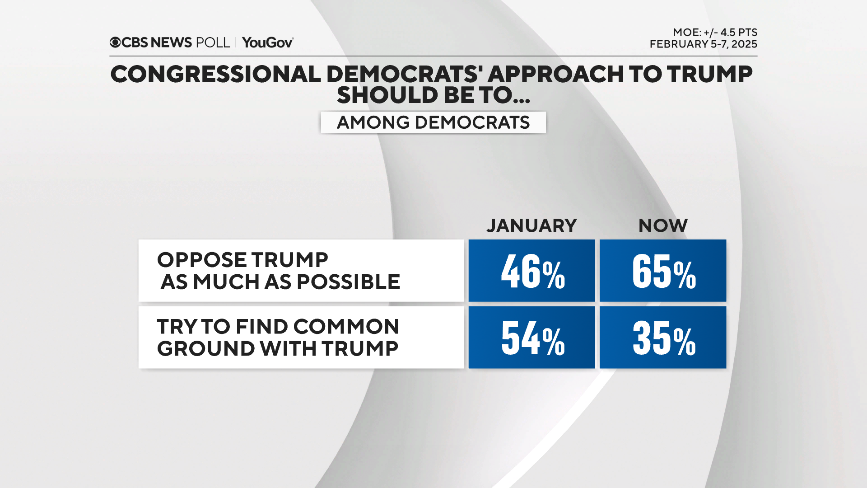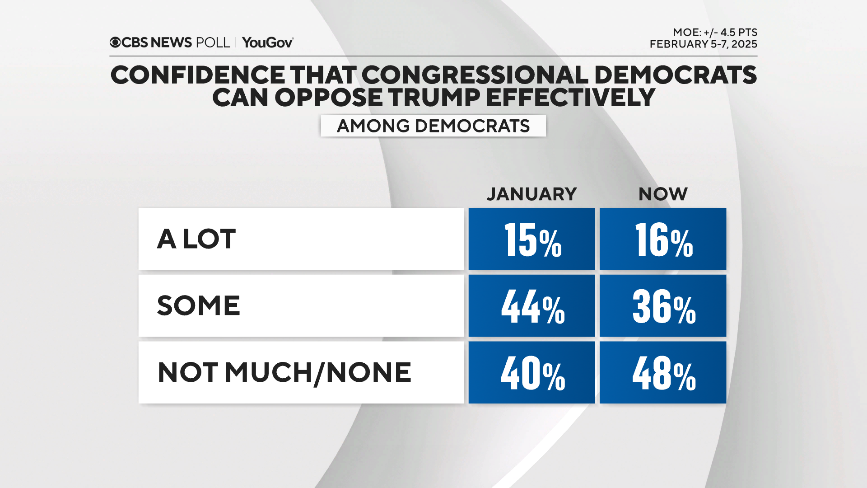As continuously occurs early in a presidential time period, a lot of the point of interest has been at the new Trump management, which began with net positive reviews — however how do American citizens suppose the events in Congress will have to be reacting?
The country’s rank-and-file Democrats are an increasing number of on the lookout for extra opposition to President Trump from their congressional delegation. Forward of the inauguration, a slight majority of Democrats concept their congressional representatives ought to hunt commonplace flooring.
Nowadays, a couple of weeks into the time period, the ones sentiments are decrease, and extra Democrats need their celebration in Congress to oppose Mr. Trump up to conceivable.
Liberal Democrats are the perhaps to need opposition. In January, that view used to be extra confined to the “very” liberal than it’s now. Nowadays, it comprises maximum Democrats who establish as liberals, and average Democrats are extra cut up over whether or not to seek out commonplace flooring.
But, in addition they categorical comparably slightly much less self assurance of their leaders’ skill to take action successfully than they did simply prior to Mr. Trump took office. Nowadays, simply over part have a minimum of some self assurance — however now not so much — and part have now not a lot self assurance or none.
In the meantime, Mr. Trump’s movements in those early weeks were met with robust support from nation’s Republicans. However in idea, this doesn’t suggest they would not wish to see some pushback from congressional Republicans when the delegation disagrees with him. In reality, maximum do suppose issues will have to paintings this manner.
Then again, a large 4 in 10 rank-and-file Republicans would have their congressional delegation give a boost to no matter Mr. Trump desires — a view in large part boosted via the ones Republicans who establish as a part of the MAGA motion.
This CBS Information/YouGov survey used to be performed with a nationally consultant pattern of two,175 U.S. adults interviewed between Feb. 5-7, 2025. The pattern used to be weighted to be consultant of adults national in line with gender, age, race, and schooling, in keeping with the U.S. Census American Group Survey and Present Inhabitants Survey, in addition to 2024 presidential vote. The margin of error is ±2.5 issues.







